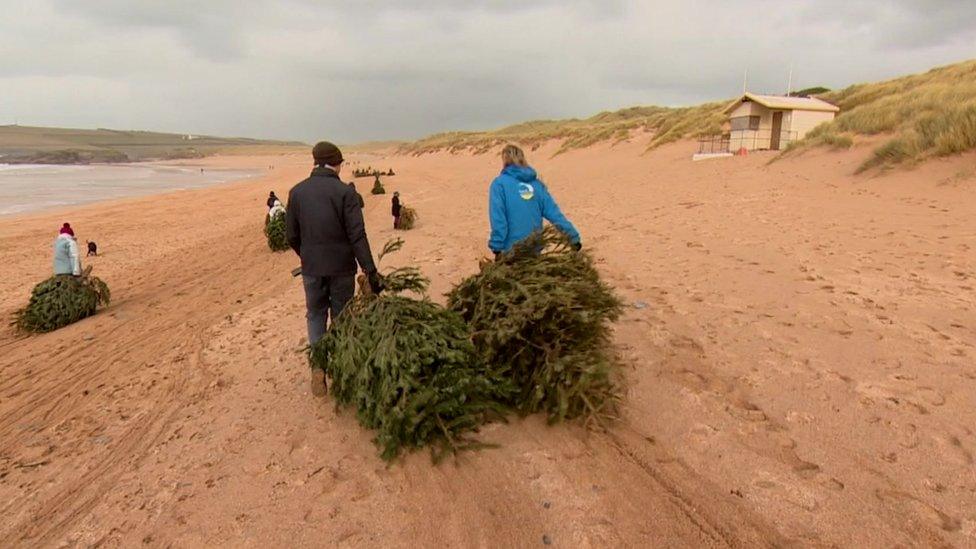Warning over shifting sand dunes on Cornish beach
- Published
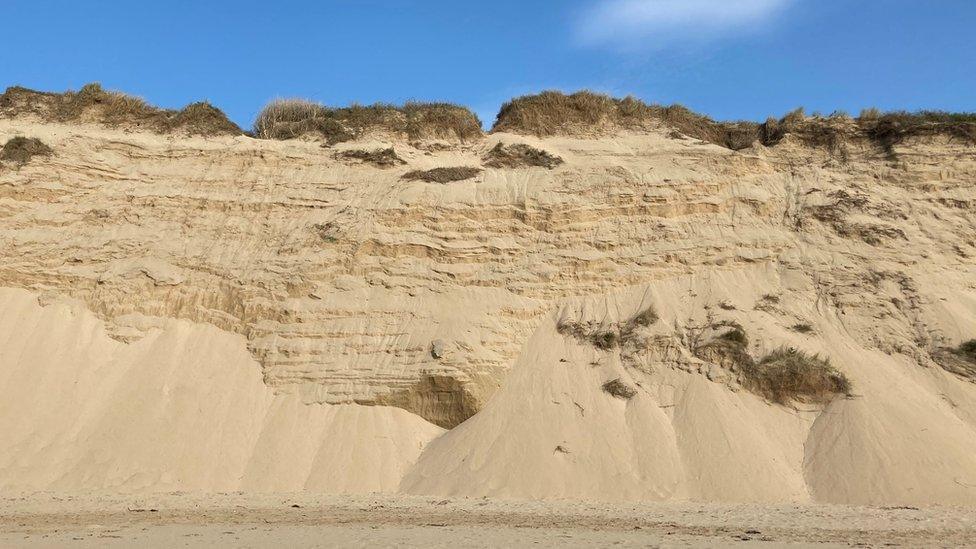
The sea has been undermining the base of the dunes for many years
Emergency services are warning that shifting sand dunes at a Cornwall beach pose an "unprecedented" danger.
The dunes at Crantock beach near Newquay have been undermined by the sea in recent years, creating steep sand cliffs at risk of collapse.
Specialist rescue training exercises have been held and several warning signs have been put up.
A senior coastguard said they "could give way like it would do in an avalanche... burying people".
Agencies including the RNLI, HM Coastguard and Cornwall Fire and Rescue Service have formed a working group over the issue.
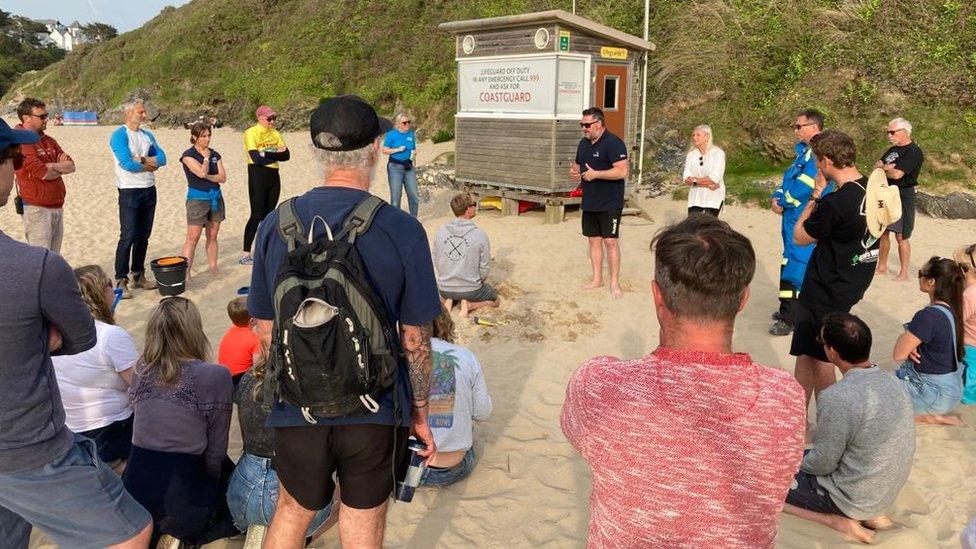
Volunteers members of Crantock Surf Live Saving Club have been briefed on the dangers
People are being strongly urged to avoid the sand dunes and to stay well clear of the base.
Lewis Timson, lead lifeguard supervisor for the RNLI in Newquay, said: "If you're on those dunes and they collapse there is a risk for it to be fatal.
"We've all come together because we've recognised this is such a significant risk... It's really unprecedented, especially here in the South West, we don't know anywhere else that's having the problem to this scale."
He added: "You want to be at least 50m (164ft) or so away from the base of the sand dunes".
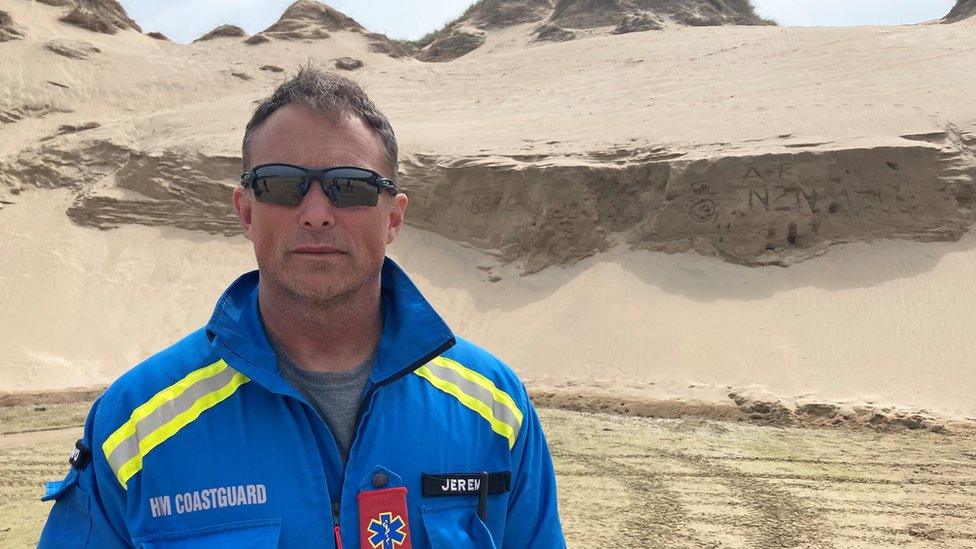
Jeremy Griffiths, from HM Coastguard, strongly urged people to stay away from the dunes
Jeremy Griffiths, deputy station officer for HM Coastguard, Newquay, said: "We've got a tidal issue that's happened to create a really big cliff face made of sand which is very, very unstable.
"At any moment that could give way like it would do in an avalanche somewhere in a ski resort, burying people."
He added: "For us to come and find you is difficult - to try and rescue you is really difficult."
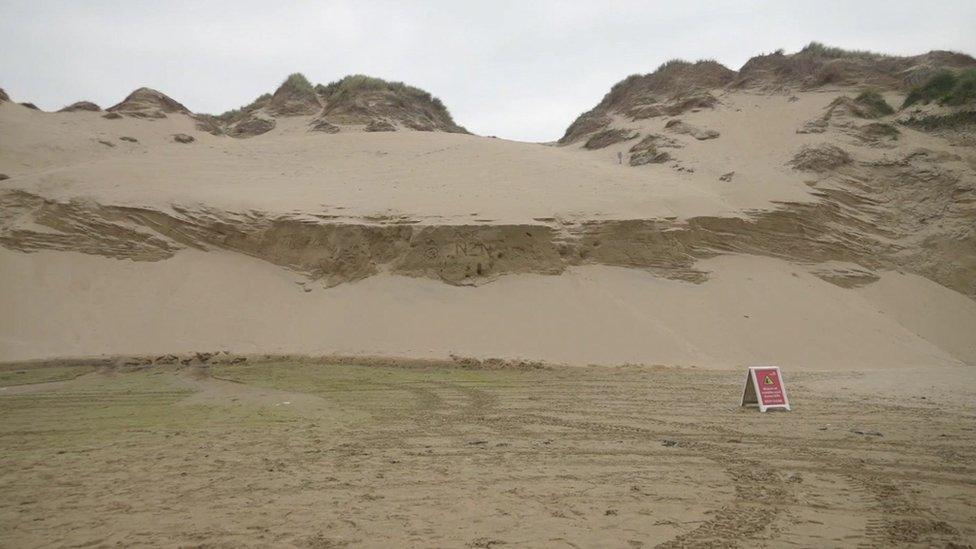
Emergency services said people could become buried if they are too close to the sand dunes
Emergency services are working together with the land owner, the National Trust, and other authorities, groups and local business, to spread warnings.
Fire officer Dominic Walford said Newquay Fire Station had invested in a specialist 4x4 rescue vehicle "so that if we do get an incident at this beach we can respond in the quickest way we possibly can".
Sandra Jones, from Oxford who was holidaying at Crantock beach with children, said she had not realised the dangers.
"I think I'll probably I'll be more wary of where I thought there were rocks underneath the sand but I can see they're now compacted sand, I mean some of them are sort of coming down now," she said.
"There could be more signs."
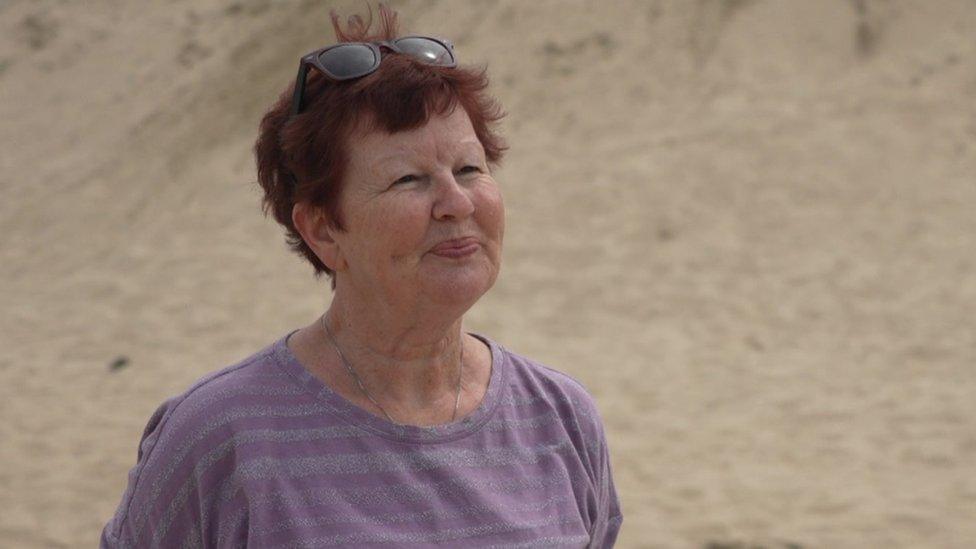
Sandra Jones ,from Oxford, said she would not have known to warn children in her group
A spokesperson for Crantock Surf Life Saving Club said they were "working with the emergency services to help educate people to the dangers and help avert a tragic incident".
A National Trust spokesperson said people should "stay clear from the base of the sand cliffs and do not allow children to play near them".
They said the trust do "as much as we can to make visitors aware of the situation" with "clear signage advising visitors to avoid the sand dunes at all access points" and staff in the car park "briefing visitors on arrival" during daytime hours.

Follow BBC News South West on Twitter, external, Facebook, external and Instagram, external. Send your story ideas to spotlight@bbc.co.uk.
- Published9 April 2023
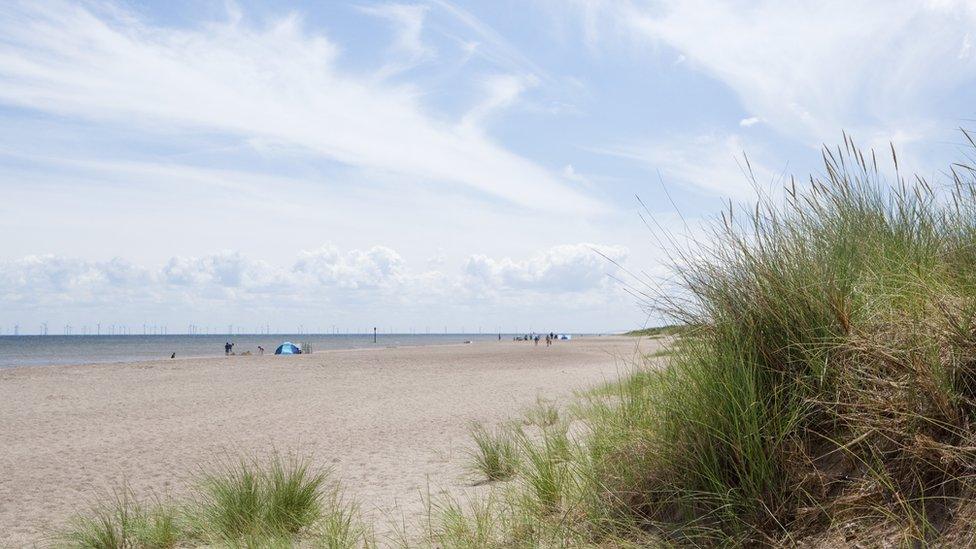
- Published5 April 2023
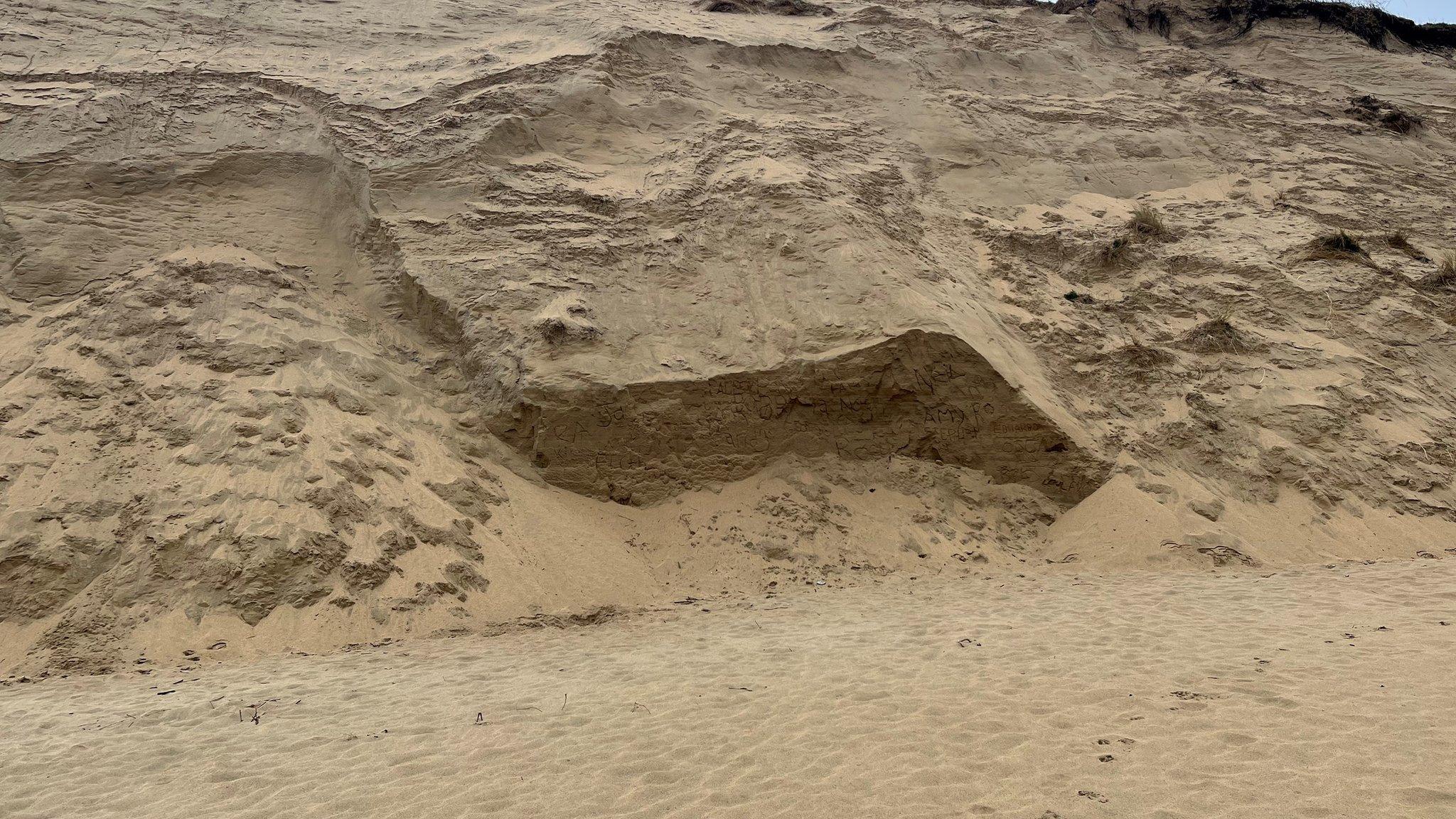
- Published16 January 2023
